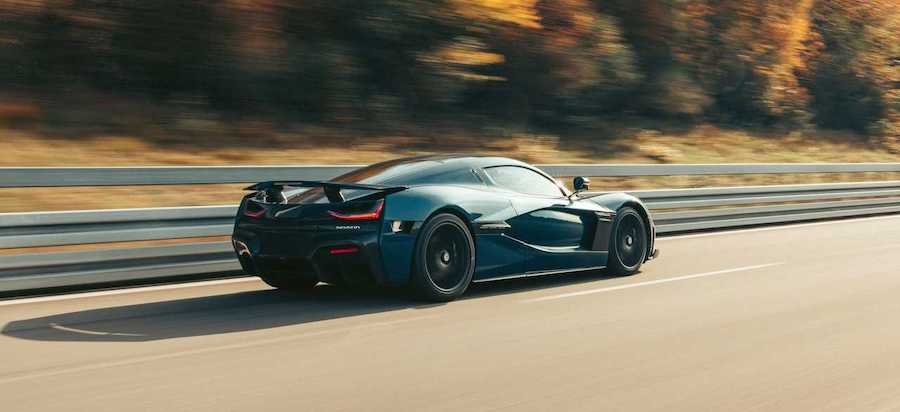Rimac Nevera Crowned Fastest Production EV After Hitting 256 MPH

After doing the quarter mile in a mind-boggling 8.58 seconds a little over a year ago, the Rimac Nevera manages to impress us with its performance all over again. At the Automotive Testing Papenburg in Germany, the electric hypercar reached 256 mph (412 km/h) in the hands of Miro Zrnčević, the company's chief test and development driver. The track was chosen primarily for its two long straights, each measuring 2.9 miles (4 kilometers).
To make it happen, the Nevera was put into top speed mode, which on a customer car electronically limits the maximum velocity to 219 mph (352 km/h). However, Rimac says those 150 people fortunate enough to own one can take their prized possessions to the absolute maximum during "special customer events with the support from the Rimac team and under controlled conditions."
The Nevera was not modified for the top speed attempt, and it used road-legal Cup 2 R tires. An engineer from Michelin was on location to check the rubber prior to the record-breaking run. Rimac says the hypercar was already doing 155 mph (250 km/h) after exiting the banking and heading into the straight when Miro Zrnčević put the four motors to work to unlock a mighty 1,914 horsepower. To accurately measure speed, a GPS-based Racelogic V-Box device was installed inside the car.
It will take a while before high-performance EVs will be able to match the top speeds achieved by ICE-powered hypercars. As a refresher, the Bugatti Chiron Super Sport remains the speed king after reaching 304.77 mph (490.48 km/h) in 2019 at the VW Group's Ehra-Lessien testing facility. There's no rivalry between the two brands since they sit under the same corporate umbrella after merging to become Bugatti Rimac about a year ago.
As to which EV can go faster than the Rimac Nevera, we can't think of any. Lotus has promised a top speed of over 200 mph (322 km/h) for the Evija, but there's a long way to go until 256 mph (412 km/h). The Pininfarina Battista will hit 217 mph (350 km/h) while the Nio EP9 can "only" do 194 mph (312 km/h) and it's not road legal. The Lucid Air did 235.44 mph (378 km/h) in 2017 and we mustn't omit the Aspark Owl with its claimed top speed of 249 mph (400 km/h).
There's also the second-generation Tesla Roadster, which is apparently coming in 2023 after several delays. When the namesake concept was presented five years ago (yes, November 2017), it was touted as having a top speed of more than 250 mph (402 km/h). We'll believe it when we'll see it. In the meantime, the Nevera reigns supreme.
